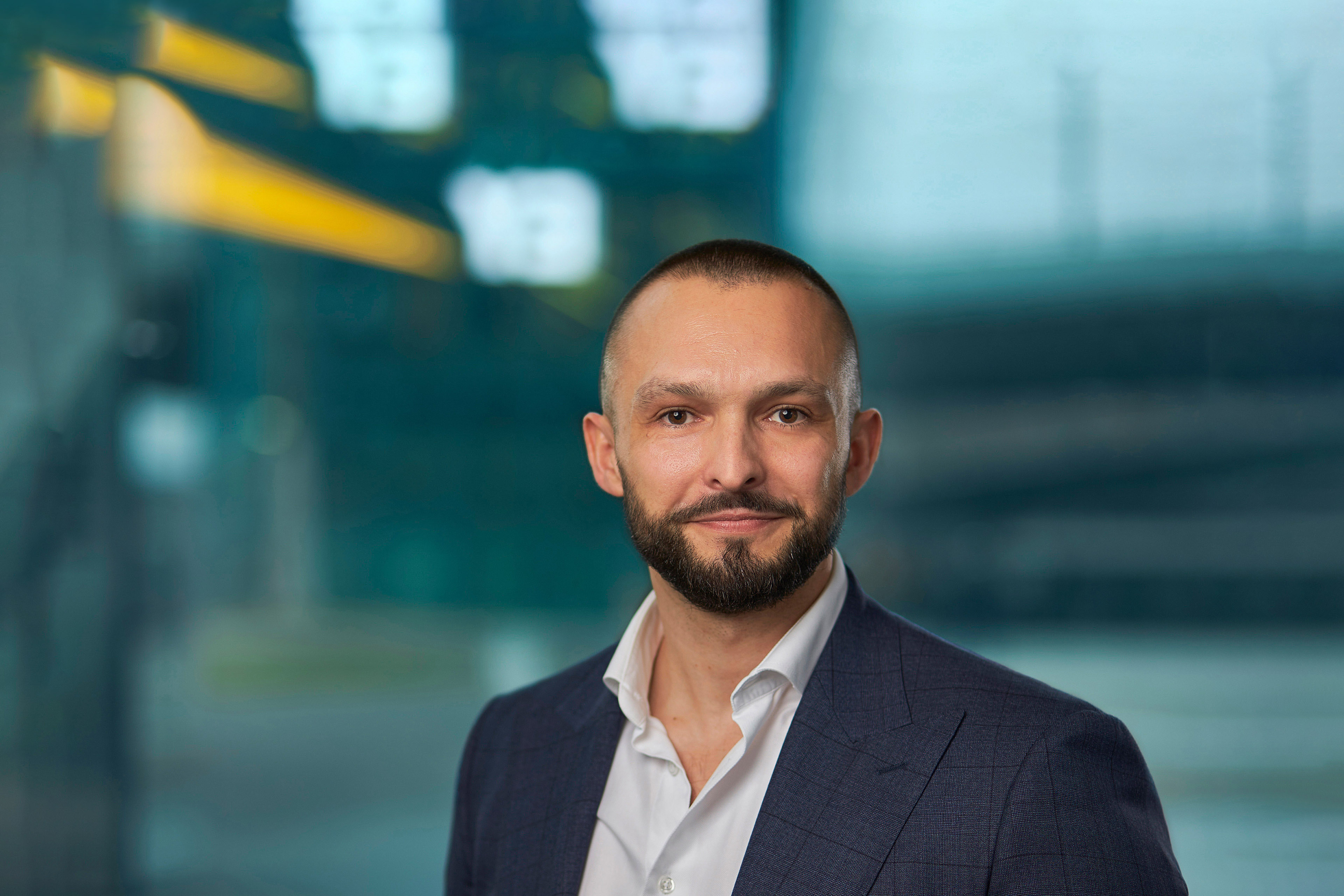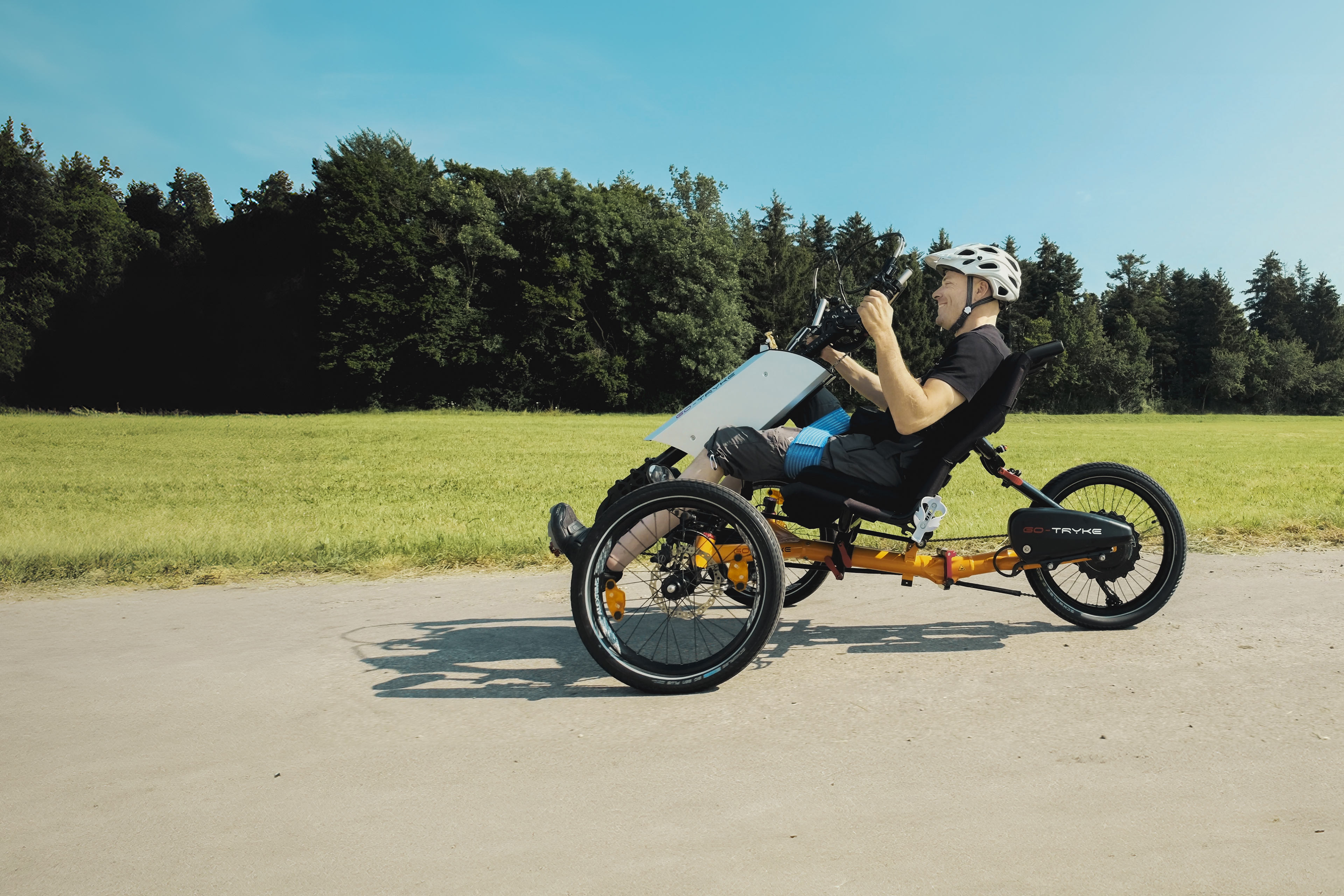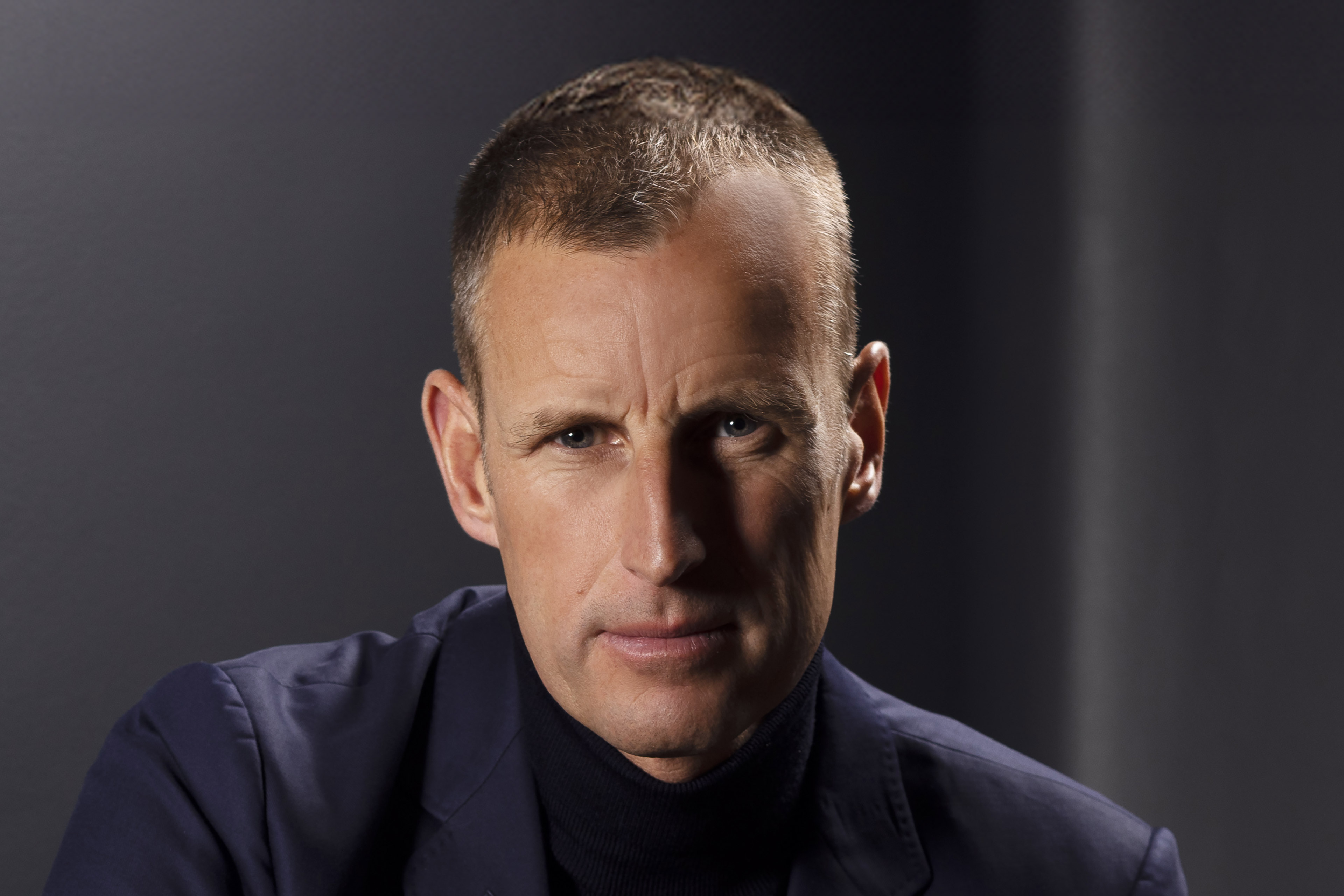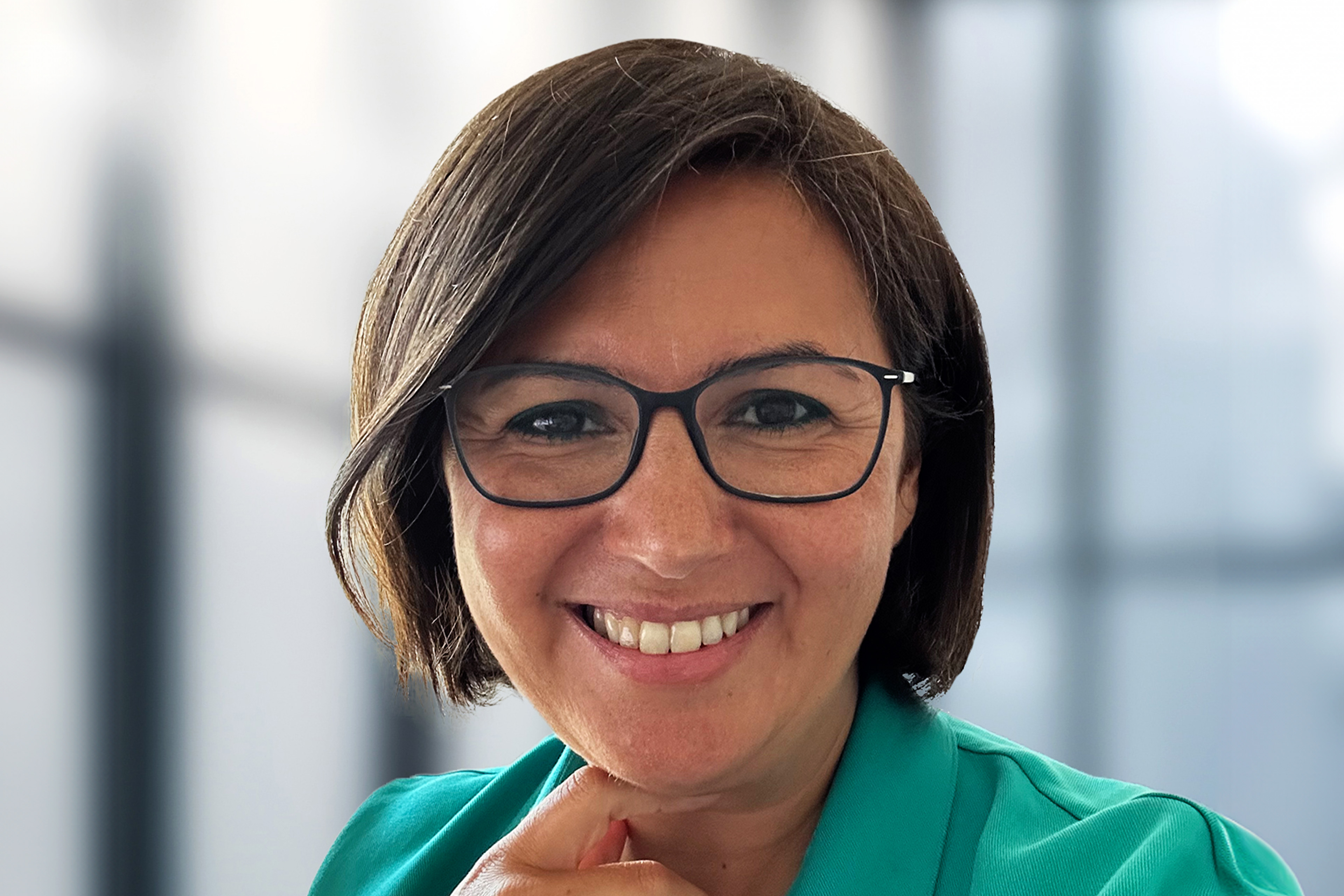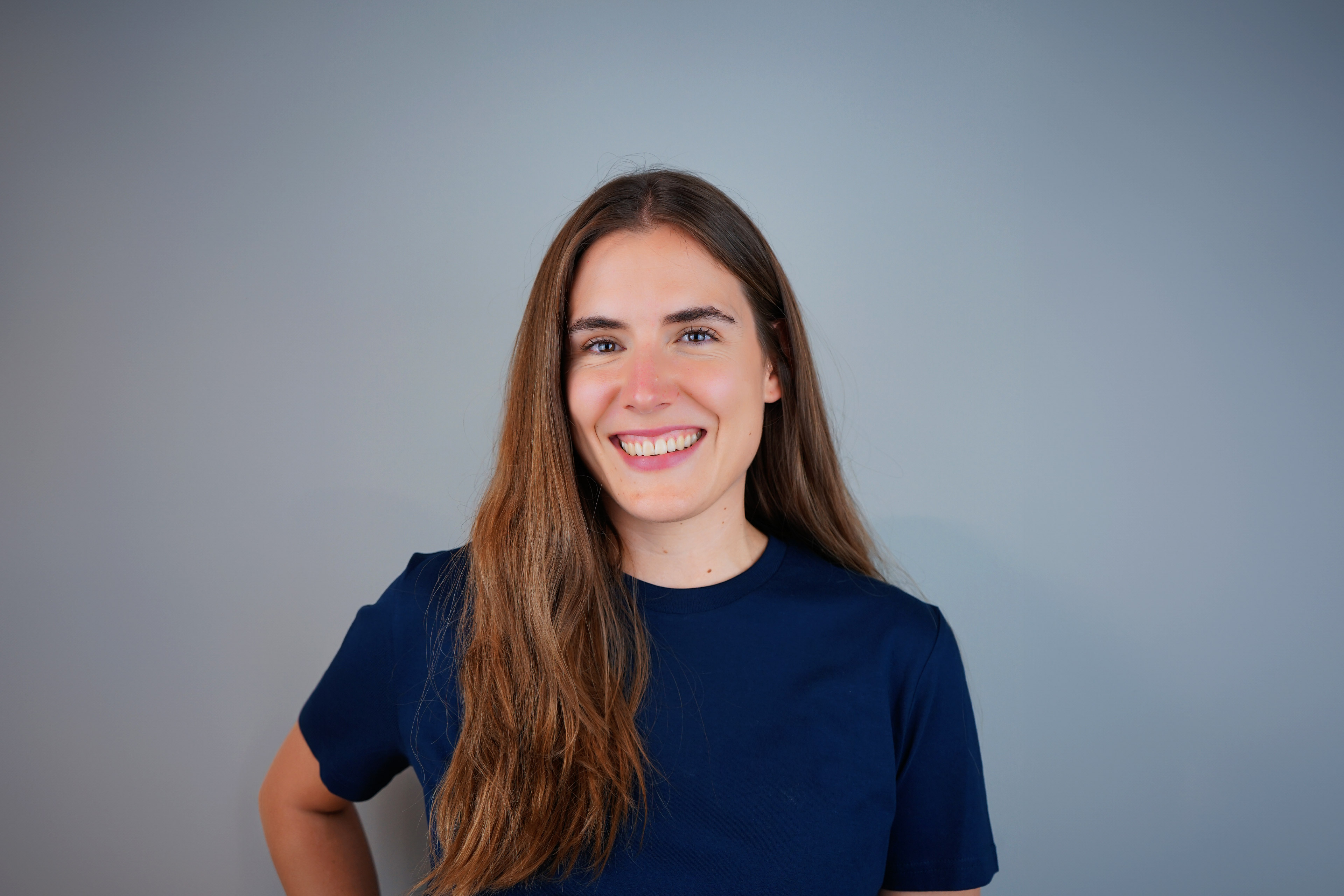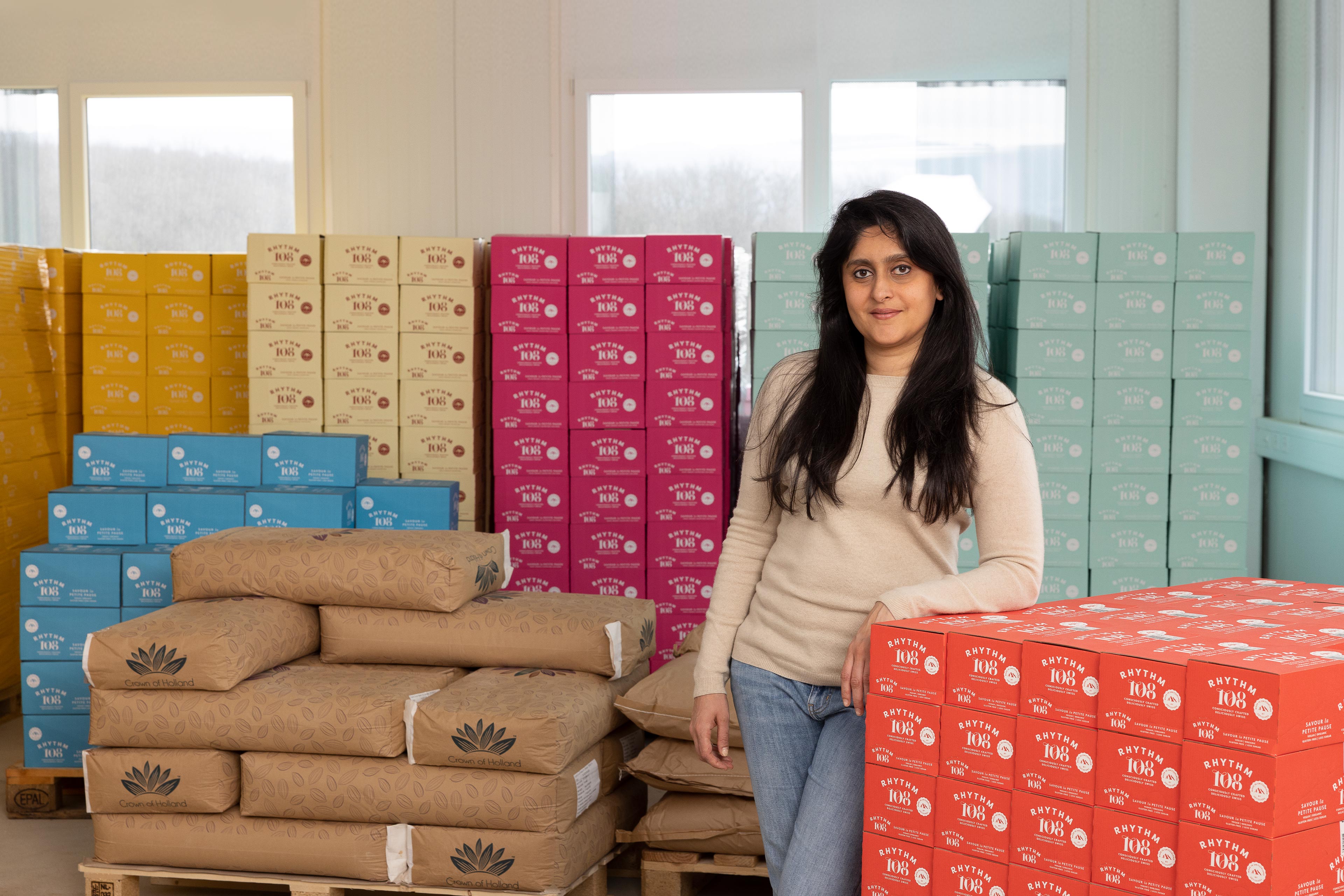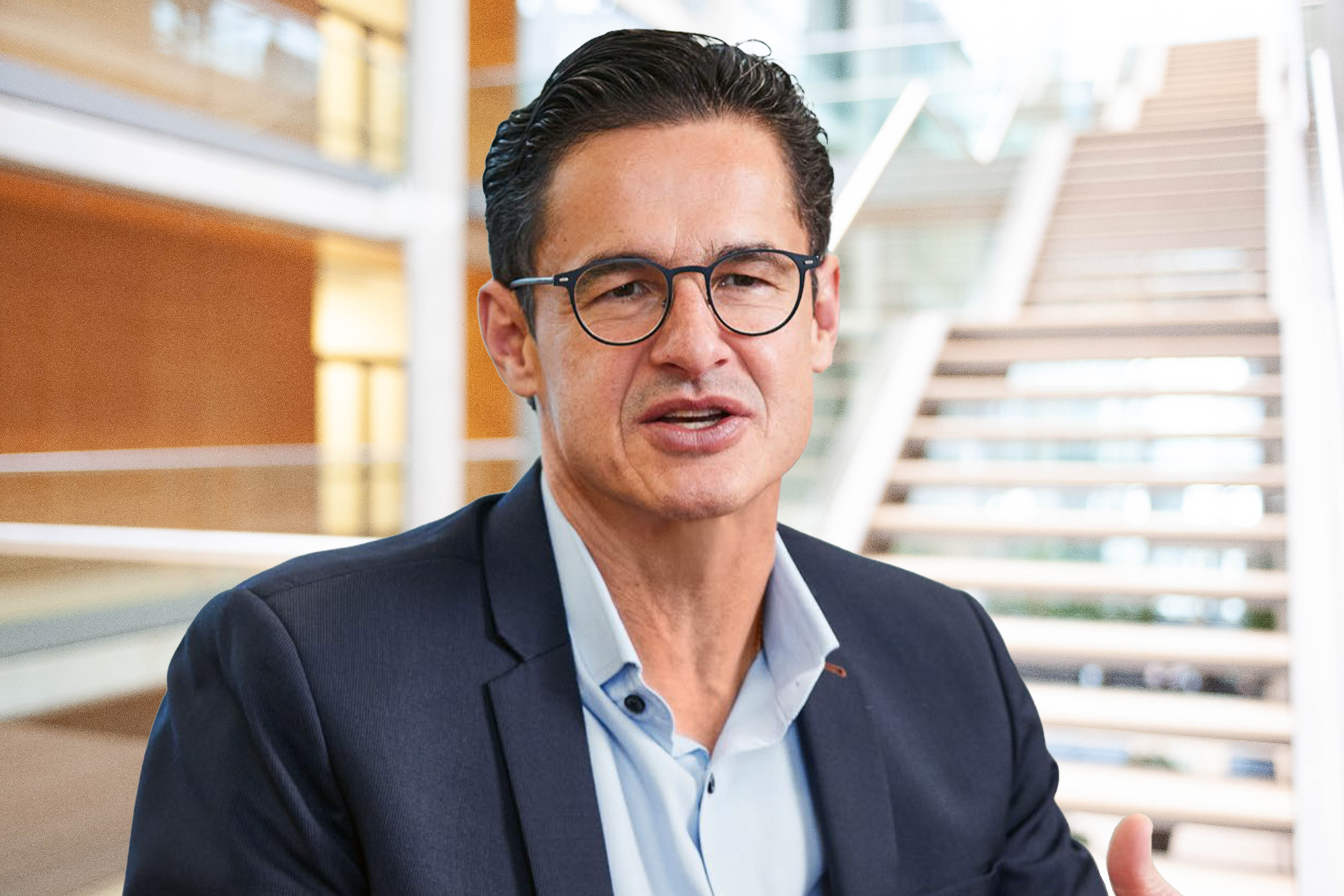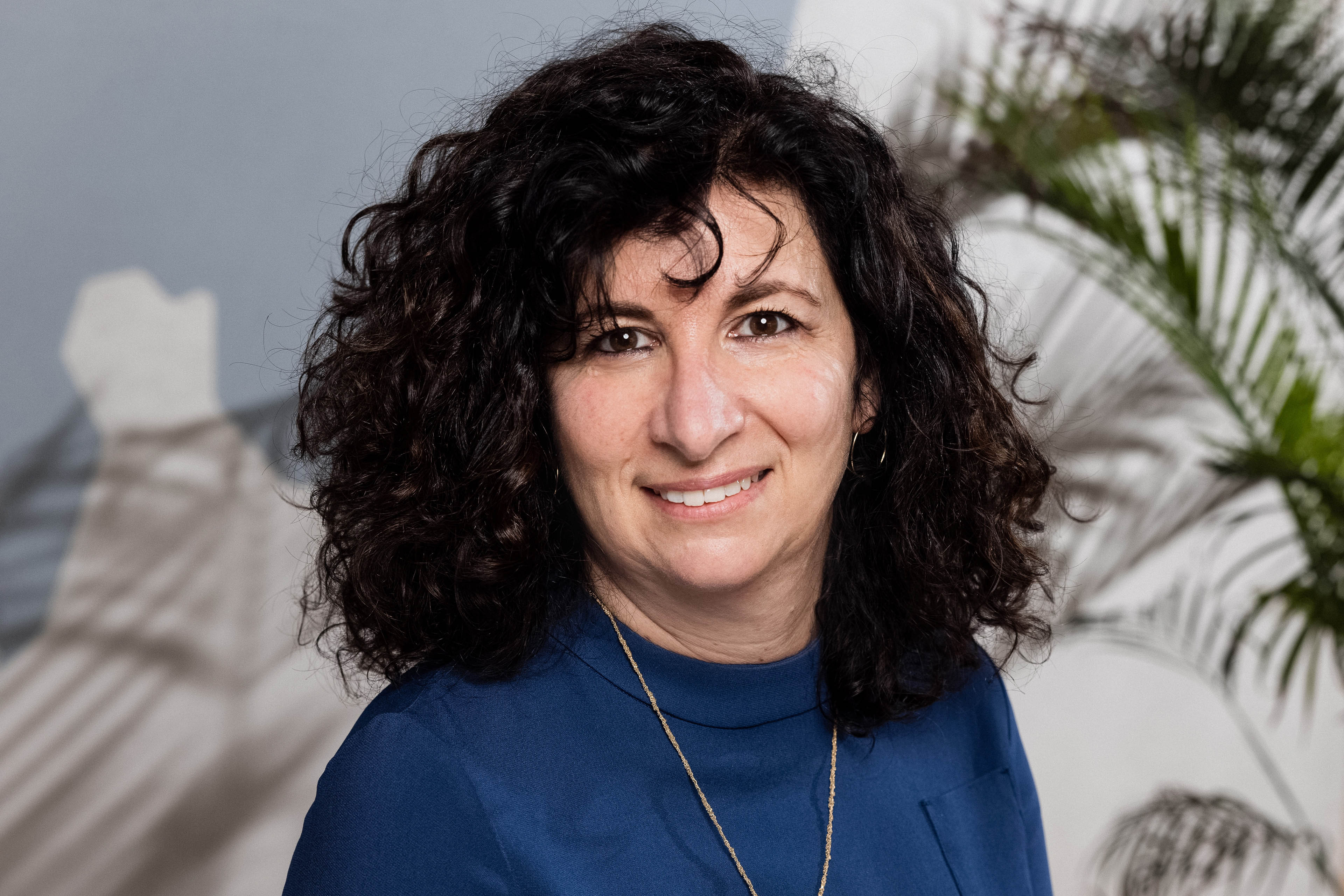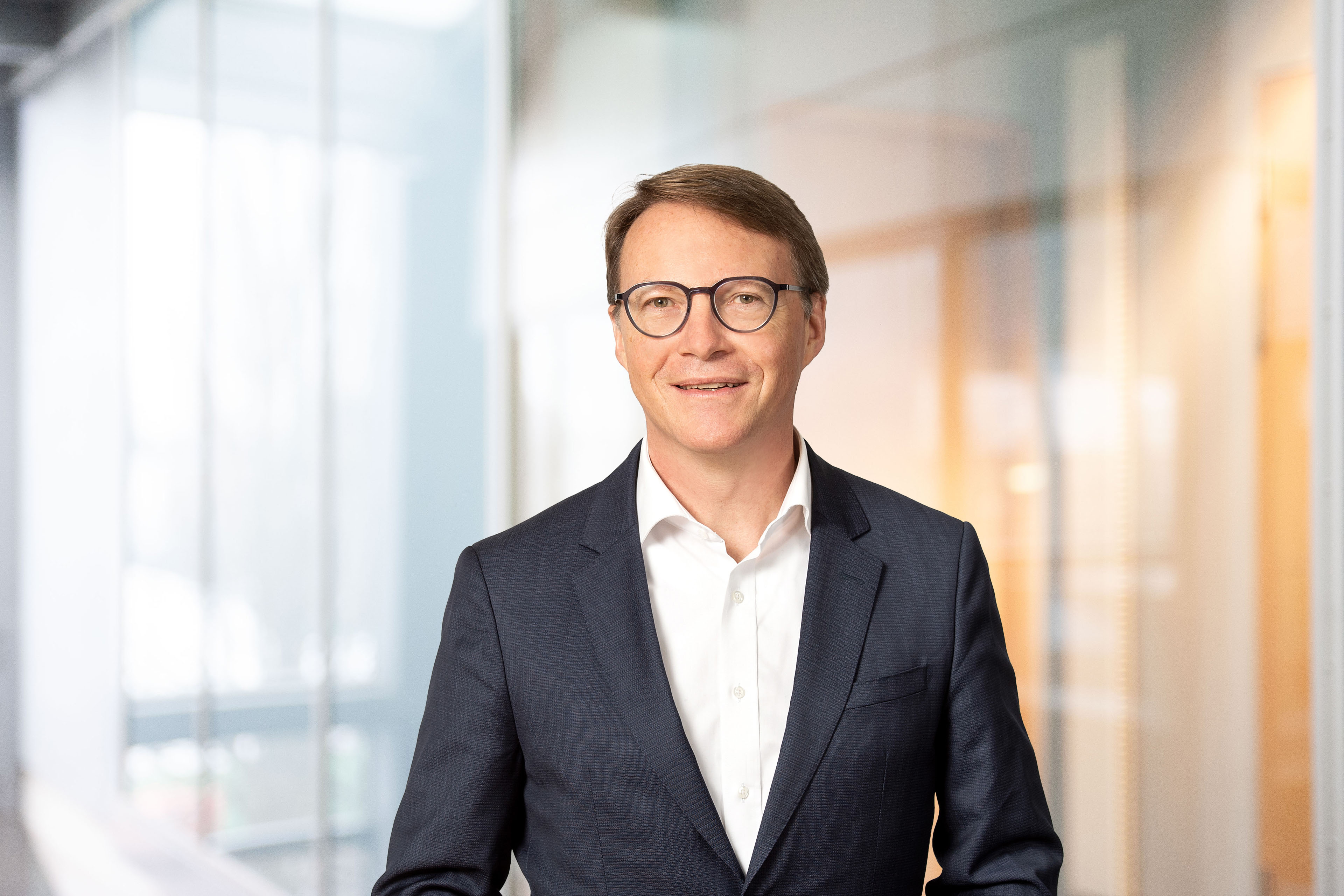EY refers to the global organization, and may refer to one or more, of the member firms of Ernst & Young Limited, each of which is a separate legal entity. Ernst & Young Limited is a Swiss company with registered seats in Switzerland providing services to clients in Switzerland.

“I’m not afraid of AI because I see that this technology could benefit us.
Francisca Obrecht, Co-Owner of Weingut Obrecht
Francisca Obrecht and her husband Christian are the fifth generation to run the Obrecht winegrowing estate in Jenins, Grisons. A trained farmer, Lucerne native Francisca Obrecht, who grew up in Gran Canaria, studied biotechnology on the shores of Lake Zurich. After graduating, she devoted less time to her profession and more to the vineyard, office and wine cellar.
Francisca Obrecht, who together with her husband Christian runs the fifth generation of the Obrecht estate, talked to us about climate change, artificial intelligence and innovation – and explained how these trends will influence the next generation of winegrowers in Switzerland.
The vineyard has been around since 1910. When you and your husband Christian took over as the next generation in 2006, what challenges did you encounter?
The whole takeover was a fascinating process. We were fortunate to have a very sound business to step into. Well-tended vines, a great customer base, good sales – all this gave us the freedom to develop further. Winegrowers agree that good wine is made in the vineyard. This is what motivated us to switch from conventional to biodynamic farming certified with the Demeter label. We were able to take that risk because we were in a solid financial position. Biodynamic cultivation of the vines changes the quality of the grapes. They become smaller, the juice/skin ratio changes, the fruit contains less water. This in turn affects how the grapes are pressed. We suddenly needed more space for vinification, which led us to invest in a new building in 2019, so that we could put our ideas and philosophies into the wine.
How did you ensure that the strong “Obrecht” brand remained?
Our great advantage is that we work with nature, which grounds us. We can’t just buy raw materials and produce large quantities, there’s a natural limit. At the same time, after all these innovations, we noticed that we were losing ourselves a bit and decided to launch a strategy process. An external consulting team helped us to reflect on our plans and ideas, which was greatly needed. It’s been liberating to clarify where we stand, where we want to go, what our core values are, what makes us tick. Thanks to this process, we could define the core values of the brand and fully focus on our core competencies. As a person with many interests and talents, there’s always a small risk of getting carried away and weakening the brand.
You produce 80,000 bottles of wine per year, which are mainly sold in high-end gastronomy. How does your wine stand out from the competition?
With its small-scale structures, our region enables us to produce wine in a very artisanal way. It’s also something of a rarity in the wine world that the owners get stuck in themselves. This lends the product an implicit authenticity. Good quality is a key prerequisite for success. The consumer’s relationship to the wine, the experience on the farm and the emotions we convey make the small but essential difference. In addition, we are able to maintain very long-term partnerships, which is the main reason why we want to keep our farm at its current scale. As owners and as individuals, we are present for our customers and our employees. That is extremely important to us.
If you do the bookkeeping yourself and understand your balance sheet, you can make quicker decisions and identify trends faster
You were originally trained as a farmer. How did you learn your craft as a winemaker?
Agriculture is a very broad field that includes farming, livestock breeding or the cultivation of special crops. In my training, viticulture was considered a special crop, so I had already learned some useful skills such as driving a tractor and understanding the vegetation cycle or plant protection products. In summer, we have long working days, while in winter we have long and relaxing evenings.
Being hands-on is extremely important for me. If you do the bookkeeping yourself and understand your balance sheet, you can make quicker decisions and identify trends earlier. Farming gives us the sense of being rooted in the land, the ability to stretch yourself during the season, which brings lots of positive energy. When the days are long, we work longer, and when they are short, we work less. You have to be able to adjust your working hours according to the season.
The ecosystem has become less predictable, which makes planning, but also risk assessment, a lot more challenging for us.
How does climate change affect the business and how do you deal with it?
There are positive and negative aspects of climate change. When I started this business twenty years ago, harvest time was in late October, give or take a few days. In the last ten years, things have changed dramatically. Harvest now can take place between late August and mid-November, most frequently in late September. The ecosystem has become less predictable, which makes planning, but also risk assessment, a lot more challenging for us. For example, this year we had three hailstorms, compared to just one in the last 20 years.
We are less concerned about having to change grape varieties because of climate change – the process is not that fast. Still, we have to be more vigilant. On the one hand, plant protection has become much more demanding because of new insects species. On the other hand, we now have a grape sorting machine so that we can process more grape fruit into different products. I always compare this with meat production. Meat coming from an animal doesn’t just consist of tenderloin, there are also cuts for braising or ragout. If we can process the entire grape harvest and make a good product out of it, it’s also an opportunity. Our sparkling wine was born out of necessity – due to climate change – and is now one of our main products.
I’m not afraid of AI because I see that this technology could benefit us.
Another important trend is digitalization. What influence does artificial intelligence have on the Obrecht vineyard?
So far only a small influence, its use is just a gimmick. We once came across a text for the Completer – a white wine grape variety – and were surprised to discover that we were mentioned. I can imagine that it might offer some help in terms of communication or to analyze certain processes. Our son is completing an apprenticeship as an electrician, so he has helped us digitalize small processes such as monitoring the temperature in the wine tanks. Digitalization is very advanced at our estate, especially in sales. That’s why I’m not afraid of AI because I see that this technology could benefit us.
You sell 98% of your wines in Switzerland. Is the international market of any interest to you and how can Swiss wines also succeed abroad?
Swiss wines are becoming increasingly popular also outside of Switzerland and their demand is rising. The Grisons region is known as the “Bündner Herrschaft” is developing a reputation for its high-quality wine. Pinot, for example, is already regarded as the finest variety. At the moment, it’s a question of how much quantity we want to produce. Sometimes we get a bit comfortable and ask ourselves: If we have a good level of sales in own country, why should we export? At the moment, there’s this trend of promoting Swiss wines on an international stage and exporting a certain percentage, which could attract more international attention for our small wine-growing region. Our export activity is still in the early stage, though, and a lot will happen in the next twenty years. The popularity of the region could have an influence on the price development. As it has been the case in Burgundy, where the base price is three times higher than it is for our wines. We are very confident and look forward to the future.
To what extent is “Swissness” an opportunity for the winegrowing business?
Our opportunity lies in our craftsmanship, something that is very much in demand today and which sets us apart. We produce wine with conviction and energy, and that’s probably what attracts our clients. If I had to characterize the Obrecht estate in three words, these would be: craftsmanship, proximity to nature and innovation.
And finally: What has been your favorite vintage so far?
That’s like asking who your favorite child is! Almost impossible to choose. Some years have been challenging. For example, in 2010 it was very cool and we didn’t start harvesting until November. Or in 2018, it was extremely dry and our countryside looked like Tuscany, everywhere the grass had turned brown. That has remained in my memory. When years like these pose a challenge to us and we worry about the grapes ripening, then it gets really exciting. And that is when real life happens, isn't it?
Featured articles and interviews
Sebastian Tobler, Co-founder and CEO of GBY SA
Sebastian Tobler is co-founder and CEO of GBY SA, which has developed a new approach for the rehabilitation of people with reduced mobility. An automotive engineer by training and trade, Sebastian Tobler’s life took a new direction when a bike accident left him paralysed. Alongside his entrepreneurial activities, he heads the SCI-Mobility Lab as Professor at the Bern University of Applied Sciences.
Patrick Pruniaux, Chairman & CEO of Sowind Group
Patrick Pruniaux has a background in business administration and began his career in the watch industry at TAG Heuer. Always fascinated by innovation, he joined Apple in 2014 and oversaw the launch of the Apple Watch. Following a move to Kering in 2017, he managed the Ulysse Nardin and Girard-Perregaux watch brands. In 2022, Patrick Pruniaux spearheaded the historic management buyout and now serves as CEO of these two brands within Sowind Group.
Serra Bicak is Senior Vice President Reckitt Africa Middle East at Reckitt Hygiene. She has lived and worked in eight different countries for various roles during her career in fast-moving consumer goods. Serra Bicak is passionate about diversity, equity and inclusion (DE&I) and leads Reckitt Hygiene’s gender balance program.
Judith Häberli, CGO and co-founder of Urban Connect as well as EY Entrepreneur Of The Year™ 2023 Switzerland winner in the category "Emerging Entrepreneur", shares her motivation for starting a corporate mobility platform and explains why real change only happens when companies work together.
Siddhi Mehta, founder and CEO of Rhythm 108, talked to us about sustainability, craftmanship – and how her company combines heritage and innovation to take the Swiss chocolate tradition into the future.
Peter Rupp grew up in Sargans, Switzerland, around 20km south of the Hilti headquarters in Liechtenstein. He studied Economics in St. Gallen, then took a post-graduate degree in Engineering in Winterthur.
Originally from Naples where she grew up and studied physics, Luciana Vaccaro moved to Switzerland in 1996 to complete a PhD in microengineering at EPFL. She held various positions in research and education at the universities of Neuchâtel and Lausanne before heading the Grant Office at EPFL. In 2013 she took the reins of HES-SO as rector. Last October, Luciana Vaccaro was elected president of the umbrella organization swissuniversities and started in her new position on 1 February.
Thomas Fürer has served ABB for 22 years, including 14 years in his current role as Group Head of Tax. A Certified Swiss Fiduciary Expert and Certified Swiss Tax Expert, he takes a keen interest in technology and digitalization in the tax function and beyond.



